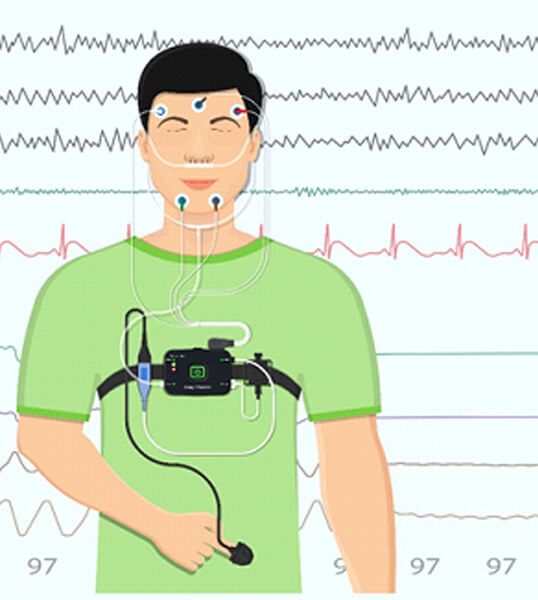Diagnosing Sleep Apnea – Scottsdale
Get to the Source of Your Symptoms
When hearing about sleep apnea, many people’s minds immediately GoTo loud snoring. While this is a common
symptom, there is much more to this sleep disorder than just snoring. Sleep apnea can result in a number of negative
consequences, including excessive daytime sleepiness, nightmares, headaches, mood changes, weight gain, and an
increased risk of hypertension, diabetes, and heart disease. To begin receiving treatment for sleep apnea, one must
receive a diagnosis first. Continue reading to learn more about this process. If you have any questions or concerns,
don’t hesitate to give us a call.
Medical History
Gathering your medical history is an important first step when getting a diagnosis. We will ask you all about your
symptoms, including if you:
- Snore, have insomnia, or feel exhausted often
- Have a family history of sleep apnea or other conditions
- Have risk factors, like obesity, tobacco use, or use alcohol excessively
- Have conditions related to sleep apnea, like hypertension or type 2 diabetes
Physical Exam
After we discuss your medical history, we will perform a physical exam to see if you could be at elevated risk of
sleep apnea. Things like a larger-than-average neck or an enlarged tongue or tonsils can make the airway more likely
to become obstructed throughout the night. The size of your jaw and the resting position of your tongue also matter.
A smaller jaw can lead to restrictions in the upper airway when lying down.
Ruling Out Other Factors
In some situations, other factors are contributing to sleep apnea symptoms. This includes hormone levels and
medications. Even being in a high-elevation environment can make a difference in your quality of sleep, resulting in
sleep apnea symptoms for several weeks. We will discuss many other factors that could be affecting your sleep.
Sleep Study
If your medical history and exam give us reason to believe that you might have sleep apnea, it will be recommended
that you complete a sleep test. This consists of you wearing a device that will monitor your breathing, heart rate,
and brain activity while you sleep. Then, the data will be evaluated so we can determine if sleep apnea is
what’s been causing your symptoms. At this point, we can make further recommendations regarding treatment
options.




